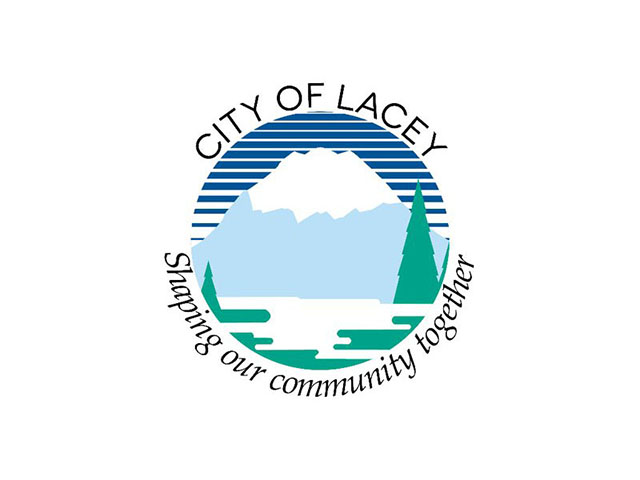Lacey works closely with other agencies in our community to prepare for and respond to emergencies and disasters, natural or man-made. Learn more about how to prepare your residence or business for emergencies and disasters at Thurston County Emergency Management.
For more information on emergency preparedness visit the Red Cross website or the U.S. Department of Homeland Security website Ready.gov.
Thurston Community Alert
Thurston County Emergency Management in cooperation with participating cities, uses several methods to warn the public of hazardous situations within the county.
Some of the warnings we issue require community members to sign up to receive the messages, such as river flood alerts.
Smart 911
Over 80% of calls made to 9-1-1 come from mobile phones. When you dial 9-1-1 from a mobile phone, the 9-1-1 call takers have very little information to help you – only your phone number and a very general sense of your location.
With Smart911, you can provide 9-1-1 call takers and first responders critical information you want them to know in any kind of emergency.
Two Weeks Ready
Hazardous conditions can play havoc on homes, businesses, and a city’s transportation system. With a little planning before extreme weather or natural or man-made disaster, our community can work together to weather any storm.
Snow, Ice & Extreme Cold
Lacey Transportation Department Snow and Ice Response Plan
During a snow storm, city crews work very hard to clear and maintain designated priority routes to accommodate emergency services. When priority routes are clear, secondary routes are addressed to provide improved access for transit, schools, and commuters. If snowfall is continuous, priority routes may require repeated plowing and secondary route plowing may be delayed.
Drivers should always be prepared to drive on snow and ice during the winter. Please refer to the winter driving section below for tips on safely operating a vehicle in wintery conditions.
Tips for Being Prepared
- Keep a snow shovel and sand at home and in your car.
- Severe cold can freeze the water in your pipes, causing them to burst. Insulate pipes, disconnect garden hoses, and insulate outdoor faucets.
- Have a safe back-up power source on hand.
- Visit TakeWinterByStorm.org for more great tips and resources on winter weather preparedness.
Winter Driving Tips
- On ice and snow – take it slow.
- Drive for conditions―use slower speeds, acceleration, steering, and braking.
- Leave early for work and allow extra time for your commute.
- Use your headlights.
- Don’t use cruise control.
- Four- and all-wheel drive vehicles will not stop or steer better in icy conditions than two-wheel drive vehicles.
- Leave extra room between your vehicle and the vehicle in front of you. And remember, big trucks take longer to stop.
- Slow down when approaching intersections, off-ramps, bridges, or shady spots.
- Slow down around chain-up areas or where pedestrians may be present.
- If traffic signals are out, treat intersection as a four-way stop.
- Stay informed with Washington State Department of Transportation (WSDOT) updates on what’s happening on highways across the state, and download WSDOT’s Winter Driving Guide.
During a Snow Storm
- Help your neighbor―remember to check on the elderly or shut-ins.
- Place snow removed from walkways and driveways on lawns and greenways to avoid creating additional driving hazards in your neighborhood.
- If a water pipe breaks, shut-off water main immediately and call a plumber.
- If physically possible, clear any debris from the storm drains to facilitate ice and snow removal.
- Drive only when safe and necessary. Arterial streets are cleared to allow bus traffic. Check the Intercity Transit website for bus information.
Power Outage
Report a power outage to Puget Sound Energy by calling 1(888) 225-5773 or visit PSE.com
Extended power outages may impact the whole community and the economy. A power outage is when the electrical power goes out unexpectedly.
A power outage may:
- Disrupt communications, water and transportation.
- Close retail businesses, grocery stores, gas stations, ATMs, banks and other services.
- Cause food spoilage and water contamination.
- Prevent use of medical devices.
During a power outage:
- Do not use grill, outdoor cooking devices, or generators indoors.
- If you use a kerosene heater, make sure there is plenty of ventilation. Keep heaters away from curtains and clothing, and make sure heaters are turned off before going to bed. Do not leave children or pets alone with a portable heater.
- Keep freezers and refrigerators closed.
- Use a generator, but ONLY outdoors and away from windows.
- Do not use a gas stove or oven to heat your home.
- Disconnect appliances and electronics to avoid damage from electrical surges.
- Have alternate plans for refrigerating medicines or using power-dependent medical devices.
- Check with local officials about heating and cooling locations open near you.
Extreme Heat
There is hot, and then there is hot! Extreme heat is a period of high heat and humidity with temperatures above 90 degrees for at least two to three days. In extreme heat your body works extra hard to maintain a normal temperature, which can lead to death. Extreme heat is responsible for the highest number of annual deaths among all weather-related hazards.
Department Contact
Ed Taylor
Emergency Management & Safety Coordinator
TEL: 360-486-8706
EMAIL: ed.taylor@cityoflacey.org

 HOA Snow Plowing Policy
HOA Snow Plowing Policy






